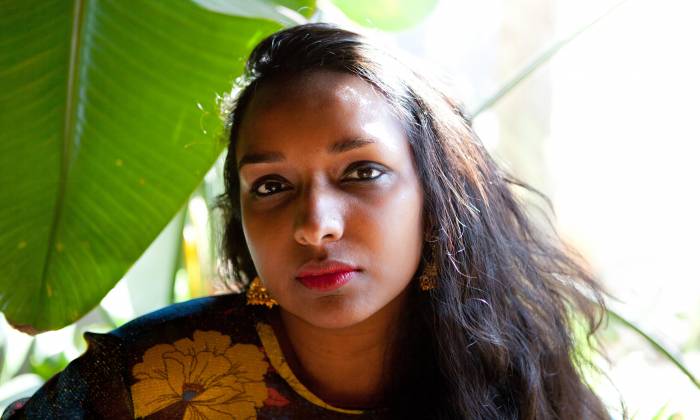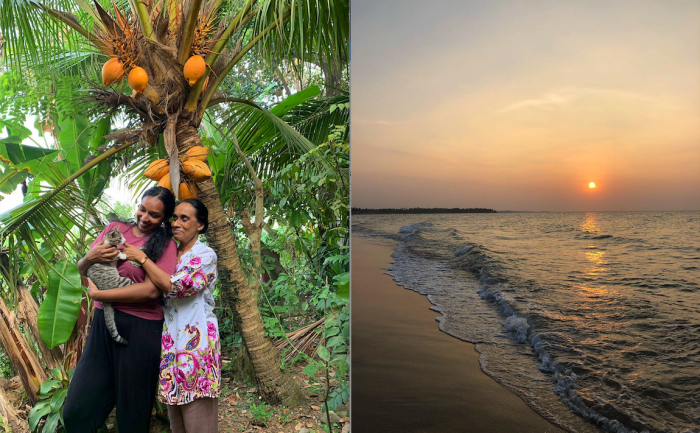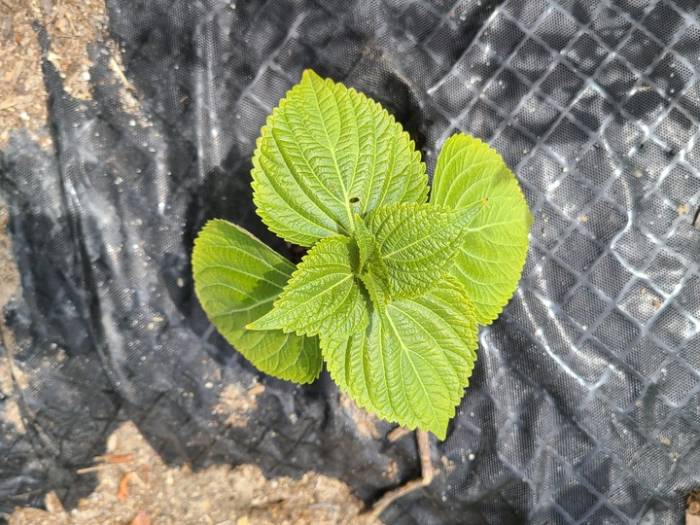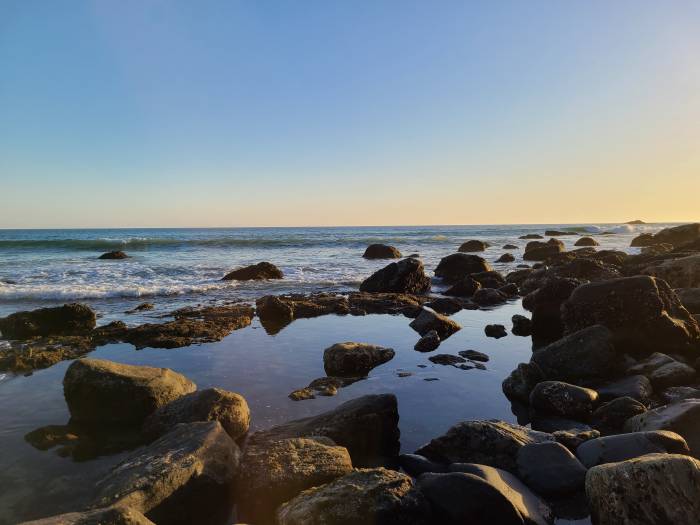
This blog post is available in: English, Traditional Chinese
The month of May is Asian American and Pacific Islander (AAPI) Heritage Month in the United States, dedicated to recognizing AAPI communities. “Asian American, Native Hawaiians, and Pacific Islander” is a very broad term — many say too broad, often more homogenizing than empowering. As of 2019, there were 14.1 million immigrants from Asia living in the United States, accounting for 31% of all immigrants in the country.
Thanu Yakupitiyage is a Sri-Lankan-born, Thailand-raised New Yorker and US Communications Director of 350.org. Yakupitiyage wishes that people understood that the continent of Asia and the term “Asian American” do not refer to a monolith: “What does Asia really mean when it’s a geopolitical region that spans from Iran to Japan, Mongolia to Indonesia? When you use the term Asian American and Pacific Islander, you’re also talking about Fiji, Tuvalu, and all the Pacific Islands, which are a whole separate region. In all organizing work, including climate work, people need to be more specific about what they mean by Asian and AAPI because it’s important not to lose the contextualization of what’s happening to specific communities.”

Thanu Yakupitiyage, a Sri-Lankan-born, Thailand-raised New Yorker and US Communications Director of 350.org.
Moonyoung Ko is a Korean-American resident of California and US Digital Manager of 350.org. Ko adds, “There’s a lot of learning that needs to happen. Even within people who identify as Asian. A recent stat I read said that a lot of light-skinned Asians don’t consider Indians as Asian Americans. Who gets to belong in these terms?”
“Part of building Asian American power requires that [people] within Asian American spaces connect with one another, build community with one another, and get to know each other beyond stereotypes. Right now, we are so segmented and boxed into narrow ways of thinking. For Asian American representation to happen in the climate movement, this [work] needs to happen first.”
This AAPI Heritage Month comes at a time of great sorrow and grief for many AAPI communities. Over the last year of pandemic, harassment and violence against people of East Asian descent has spiked. The New York Times found that there have been more than 110 instances since March 2020 with “clear evidence of race-based hate.”
At the end of March, Robert Aaron Long, a white man, murdered six women of Asian descent and two others in Atlanta. Of the women murdered, four were of Korean ethnicity, one was Chinese, and one was Chinese-Vietnamese. They were working low-wage jobs during a pandemic.
Last month, Brandon Hole, a white man, murdered four members of the Sikh community and four others working at a FedEx warehouse in Indianapolis.
This follows a rich history of anti-Asian violence and racism in the United States, including the Chinese Exclusion Act of 1882, the Immigration Act of 1917, Japanese Internment during World War II, and the Patriot Act following September 11th, 2001.
At the same time, countries in Asia have been slammed by brutal climate impacts: Cyclone Seroja in Indonesia, Typhoon Surigae in Japan, and Cyclone Amphan in India and Bangladesh. India is experiencing a COVID-19 catastrophe. As Asian Americans and people from Asia, health and climate impacts are experienced in both motherlands and adopted homelands. Increasingly, climate disasters from the other side of the world can trigger disasters close to home. For example, last year’s wildfires in California originated from typhoons in Korea.
Both Yakupitiyage and Ko’s communities are significantly impacted by climate change. Yakupitiyage is from Sri Lanka, an island impacted by sea level rise. Her neighbors in the Maldives have already been significantly impacted by sea level rise, as are Bangladeshis to the north. Yakupitiyage says, “People from the continent of Asia are already internally migrating because of climate. What it means to be Asian is also connected to [these] specific realities on the ground.”

[Left] Thanu Yakupitiyage in her Amma’s (mother’s) garden, [Right] the beach in Sri Lanka where Yakupitiyage was born

Moonyoung Ko’s perilla plant, a plant commonly used in Korean cooking
Ko also points out that “there are a lot of Asian Americans who live close to oil refineries and feel the impacts every day. There are Asian Americans who don’t have access to clean water. It’s so pronounced, and yet it’s so invisibilized because there’s an underlying assumption that Asian Americans are fine because of their proximity to whiteness.”
As hard as it is to simply survive right now, there is great power in pan-Asian and Asian American involvement in the climate movement. Yakupitiyage says, “Asia and the Pacific Islands are going to be the most impacted by the climate crisis…. I want people to think about climate in the context of people’s right to migrate, both within the continent and from the Global South to the Global North. Especially given that the Global South is the least responsible for climate change.”
“In the context of Asian Americans and broadly communities of color, we have things to contribute to the conversation around what is going to help turn around the climate crisis. Understanding our specificity, not treating us like a monolith, interrogating assumptions of the ‘model minority myth’, and ensuring that those most impacted by the climate crisis are at the table for decision making [is key].”
Ko reflects on her own involvement in the climate movement, “As someone that lives in the wealthiest nation in the world that is also one of the biggest contributors to [the climate crisis and fossil fuel dependency]… my commitment to this movement is not just part of my residence in California or in the United States but part of my commitment to [a] global community.“
Ko firmly believes that combating the climate crisis is not an individual effort, “The focus is not on the individual but on a more inclusive approach: how we’re working with each other, especially those who aren’t traditionally included in [climate] conversations. I’m thinking about my own privilege, [and asking myself], how am I thinking about working with Asian Americans who don’t have access to the resources I do?”

A local beach in California close to Moonyoung Ko’s home
Yakupitiyage shares Ko’s global lens on climate activism, “[I have] a real commitment to a multiracial climate movement because my communities are multicultural. There’s a lot of work that Asian communities need to do about what it means to show up for each other’s communities and other communities of color… It’s important for Asian communities to be in solidarity with other Black, Indigenous, and communities of color, interrogate our own classism, colorism, and anti-Blackness, and show up in solidarity with each other in Asian communities… that will help create a more nuanced perspective on climate.”
With the world in multiple crises, generating global understanding and solidarity is more important than ever. We hope you will spend this AAPI Heritage Month learning about Asian American communities, especially those you are not part of.
To learn more, we recommend you follow: 350 East Asia, 350 Japan, Equality Labs, Asian American Advancing Justice – Atlanta, Stop AAPI Hate, 18 Million Rising, Red Canary Song, AAPI Data, and South Asian Americans Leading Together.
Denali Sai Nalamalapu is a South Indian American writer, artist, and climate communicator. She currently resides in Washington, D.C. and is US Communications Specialist for 350.org. She co-runs an intersectional climate newsletter called Entropy Inherited
為了應對健康和氣候危機,我們必須打破「亞裔美國人」孤島
五月是美國的「亞太裔美國人文化傳統月(AAPI),這一節日的設立旨在紀念亞太裔社區。「亞裔美國人、夏威夷原住民以及太平洋島民」是一個非常寬泛的概念——許多人說其過於寬泛,往往使這一概念趨於同質化而非賦權。截至2019年,有1410萬來自亞洲的移民定居於美國,佔美國所有移民的31%。
Thanu Yakupitiyage是於斯里蘭卡出生、於泰國成長的紐約人,現任350.org美國傳播總監。Yakupitiyage希望人們理解,亞洲大陸和「亞裔美國人」一詞並非單一的概念。「當亞洲是一個從伊朗到日本,從蒙古到印尼的地緣政治區域時,其真正含義為何?當你使用亞裔美國人和太平洋島民一詞時,你也在談論斐濟、圖瓦盧和所有太平洋島嶼。它們是一個完全獨立的區域。在包括氣候工作在內的所有組織行動工作中,人們需要更加明確地釐清亞洲人和亞太裔美國人的含義,因為對特定社區所發生的事情的背景描述十分重要。」

Thanu Yakupitiyage是於斯里蘭卡出生、於泰國成長的紐約人,現任350.org美國傳播總監。
Moonyoung Ko是一名居住在加州的韓裔美國人,現任350.org美國數位業務經理。Ko補充說:「這需要進行很多學習。甚至在被認為是亞洲人的群體中也需要學習。我最近讀到的一項統計數據顯示,很多膚色較淺的亞洲人並不認為印度人是亞裔美國人。究竟亞裔美國人指的是誰?」
亞裔美國人之間彼此聯繫、建立社區,並超越刻板印象而瞭解彼此,是培育亞裔美國人力量的必備條件。現在,我們被細分,並束縛於狹隘的思維方式之中。為了使亞裔美國人在氣候運動中的代表性得以體現,必須首先開展這項工作。」
對於許多亞太裔美國人社區而言,今年的亞太裔美國人文化傳統月正值傷痛之際。在過去一年的疫情期間,針對東亞裔的騷擾和暴力事件激增。《紐約時報》發現,自2020年3月以來,已有逾110起騷擾和暴力事件「具有明顯的證據顯示是與種族仇恨相關」。
三月底,白人男子Robert Aaron Long在亞特蘭大殺害了八人,其中包括六名亞裔婦女。這六名亞裔婦女中,有四名韓裔、一名華裔以及一名越南裔。他們在疫情期間從事低薪工作。
上個月,白人男子Brandon Hole殺害了四名錫克教徒以及於印第安納波利斯一座聯邦快遞倉庫工作的其他四人。
在此之前,美國就有「悠久」的針對亞裔的暴力和種族主義歷史,包括1882年的《排華法案》、1917年的《移民法案》、第二次世界大戰期間對日裔的囚禁以及2011年「911」事件後的《愛國者法案》。
與此同時,亞洲國家也遭受了氣候變遷帶來的殘酷影響,例如印尼的熱帶氣旋「塞洛亞」(Seroja)、日本的颱風「舒力基」(Surigae)以及席捲印度和孟加拉國的熱帶氣旋「安攀」(Amphan)。目前印度還正在經歷COVID-19疫情導致的災難。作為亞裔美國人以及亞洲人,我們的祖國和我們所生活的家園都面臨著健康問題和氣候變遷所導致的影響。來自世界另一端的氣候災難會愈來愈多地觸發我們周邊地區的災難。例如,去年加州的野火就源自韓國的颱風。.
Yakupitiyage和Ko的社區都收到氣候變遷的嚴重影響。Yakupitiyage來自斯里蘭卡,一個受到海平面上升影響的島嶼。她在馬爾代夫的鄰居已經受到了海平面上升所導致的嚴重影響,北部的孟加拉國人也是如此。「由於氣候原因,亞洲大陸上的居民已經在內部開始遷移,」Yakupitiyage說,「作為亞洲人的身分也於當地的具體現實有關。」

左)Thanu Yakupitiyage在其母親的花園中,(右)Yakupitiyage出生餓斯里蘭卡海灘
Ko非常了解氣候變遷對於南韓的影響:日益頻發的野火、殘酷的乾旱,以及所導致的農民和鄉村的自殺率上升。Ko反映到:「他們所擁有的全部生存能力都源於氣候如何影響自然。沒有水,他們就無法種植食物。這真是非常諷刺。」Ko還觀察到一種受到西方影響的消費主義文化,這導致汽車使用量增加、交通擁堵以及對昂貴的遠足裝備的需求,儘管遠足在過去只是日常生活的一部分。

Moonyoung Ko種植的紫蘇,這是一種在韓式料理中常用到的植物。
Ko還指出:「很多住在煉油廠附近的亞裔美國人每天都能夠感受到這種影響。他們無法獲得乾淨的水。這一影響如此明顯,但卻被掩蓋了,因為有一個潛在的假設:亞裔美國人接近白人,因此他們沒事。」
儘管現在單是活下去就有困難,但是泛亞和亞裔美國人擁有參與氣候運動的巨大力量。Yakupitiyage說:「亞洲和太平洋島嶼將是受到氣候危機影響最為嚴重的地區……我希望人們能夠在人類移徙權利的背景之下考慮氣候變遷,無論是在亞洲大陸內部還是從全球南方國家(Global South)到北方國家(Global North),特別是考慮到南方國家對於氣候變遷的責任最小。」
「作為亞裔美國人和廣泛而言的有色人種社區,我們可以為圍繞如何幫助扭轉氣候危機做出貢獻。理解我們的特殊性,而不是用一種單一概念來框定我們,質疑『模範少數民族神話』的假設,(關鍵是)要確保那些受氣候危機影響最大的人們擁有決策權。」
Ko談到了她自己對氣候運動的參與:「作為生活在世界上最富裕國家也是對氣候危機和化石燃料依賴『貢獻』最大的國家的人……我對氣候運動的承諾不僅僅是我對我所居住的加州或美國承諾的一部分,也是我對全球社區承諾的一部分。」
Ko堅信,應對氣候危機不是靠個人的努力,「重點不在於個人,而在於更具包容性的方法:我們彼此之間應如何合作,尤其是與傳統意義上沒有參與(氣候行動)討論的人開展合作。我在思考我自己的特權,(並問我自己),我是如何看待和那些無法獲得我所擁有的資源的亞裔美國人開展合作的?」

加州的位於Moonyoung Ko家附近的海灘
Yakupitiyage和Ko擁有同樣的氣候行動主義全球視角,「(我)致力於多種族的氣候運動,因為我生長的社區就擁有多元文化。亞裔社區需要做很多工作,瞭解為彼此的社區和其他有色人種社區站出來意味著什麼……亞裔社區必須與黑人社區、原住民社區和其他有色人種社區團結起來,審問我們的階級主義、膚色歧視和反對黑人的現象,我們需要與亞裔社區內的彼此團結一致地站出來……這將有助於從一個更加細緻入微的視角切入氣候運動。」
世界正處於多重危機之中,全球彼此之間的理解和團結比以往任何時候都更為重要。我們希望您能夠在本次亞太裔美國人文化傳統月中學習有關亞裔美國人社區的資訊,尤其是那些並非您所屬社區的內容
想要了解更多,我們推薦您關注:350東亞、350日本、Equality Labs、亞特蘭大亞裔美國人司法促進會、Stop AAPI Hate、18 Million Rising、Red Canary Song、AAPI Data以及South Asian Americans Leading Together。.
Denali Sai Nalamalapu是一名南印度裔美國作家、藝術家、氣候傳播者,現居華盛頓特區,擔任350.org美國傳播專家。她還與人共同運營了一份跨部門的氣候通訊,名為Entropy Inherited。


0 Commentaires